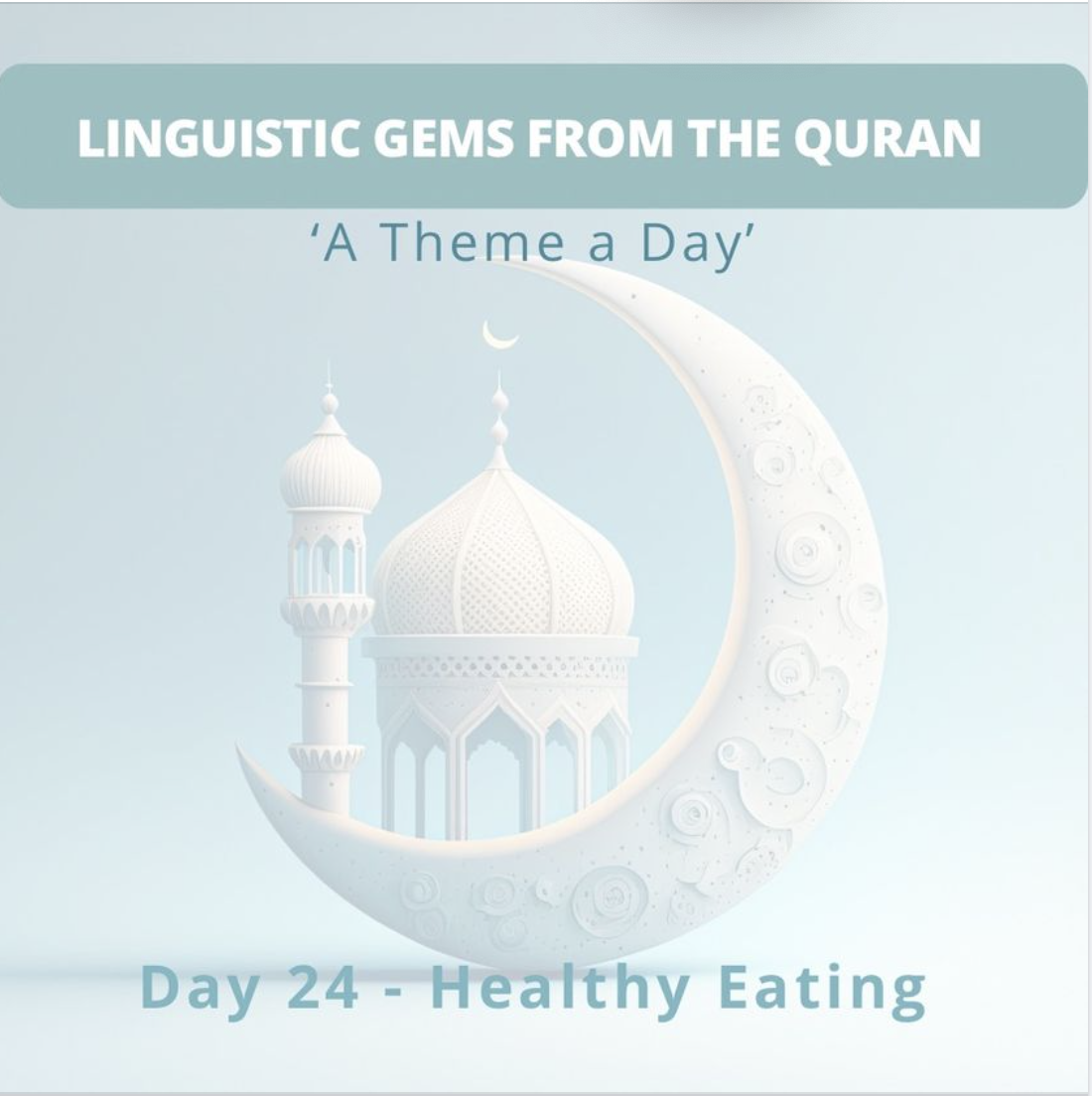 In Surah al-Baqarah, verse 168, Allah commands,
In Surah al-Baqarah, verse 168, Allah commands,
يَـٰٓأَيُّهَا ٱلنَّاسُ كُلُوا۟ مِمَّا فِى ٱلْأَرْضِ حَلَـٰلًا طَيِّبًا
O mankind, eat from whatever is on earth [that is] lawful and good
In Islam, the consumption of food is governed by guidelines that emphasise the importance of eating food that is both حَلالٌ halal (lawful) and طَيِّب tayyib (good).
While the concept of halal is widely understood, the meaning of tayyib is often less clear.
The term “halal” حَلالٌ refers to foods that are deemed lawful in Islam. This includes a wide variety of foods, with the exception of those explicitly prohibited in Surah al-Baqarah (2:173), such as carrion, blood, swine, and anything sacrificed to other than Allah.
The word “tayyib” (طَيِّب) is often translated as ‘good,’ but its meaning goes beyond that.
Words are often defined by their opposites, and linguistically the opposite of طَيِّب tayyib is khabeeth (خَبيثٌ), which means contemptible.
Tayyib, therefore, refers to food that is esteemed as good and delightful in two senses: in taste and in odour. It represents food that is not contemptible or detested by one’s inner self, such as carrion, blood, swine, and other similar items.
The combination of the words حَلَال halal and طَيِّب tayyib in the Qur’anic verse indicates that Muslims are encouraged to consume foods that are both accepted by their desires and approved by Allah.
Tayyib refers to the nature and reality of the food, while halal refers to its legal ruling. Together, these two concepts help guide Muslims towards a mindful and spiritually aware approach to eating.
And Allah knows best.
